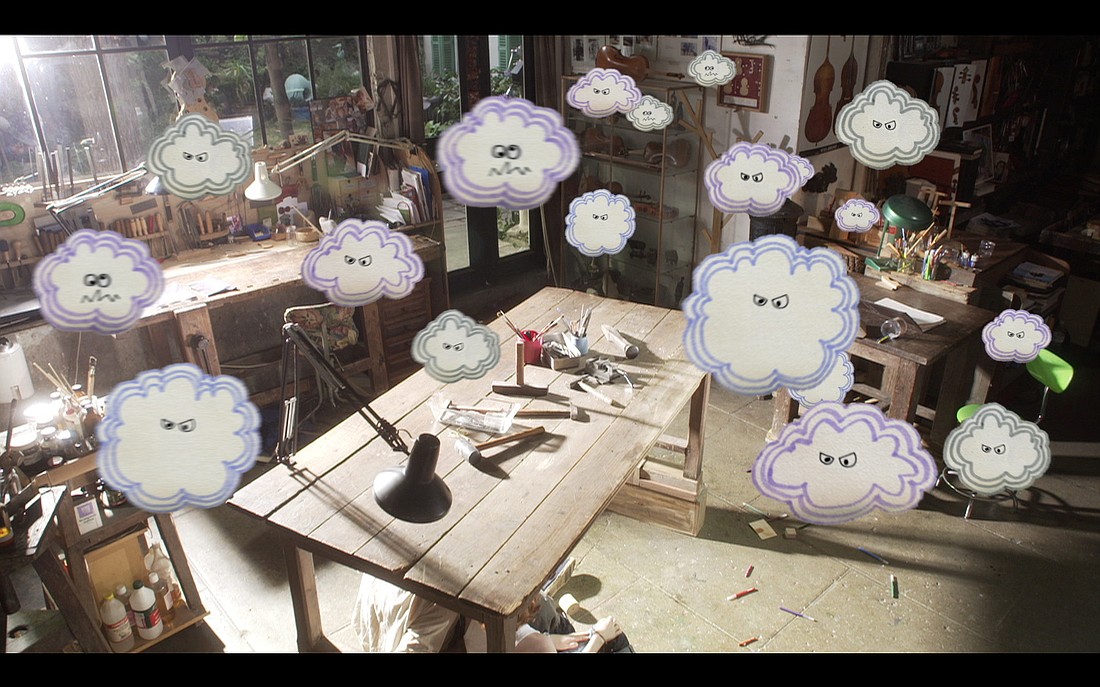- April 25, 2024
-
-
Loading

Loading

The mission of Sarasota Film Festival’s education department is to inspire, educate and entertain students by promoting creativity, collaboration and community involvement. SFF Education reaches more than 5,000 students, works with them year-round and creates special opportunities for recognition during the festival, empowering students with critical-thinking skills and the tools to express themselves.
This week, students review “Paulie” and “Antoine’s Four Seasons.” See “Antoine’s Four Seasons” at 12:15 p.m. Sunday, April 7. Recommended for ages 7 and up. See “Paulie” at the Sarasota Film Festival at 10:30 a.m. Saturday, April 13. Recommended for ages 10 and up.
All youthFEST films are free for kids ages 12 and under. For a full listing of youthFEST shorts programs, feature films and events, visit sarasotafilmfestival.com.
‘ANTOINE'S FOUR SEASONS’ (Les 4 saisons d’Antoine Varte)
Mrs. Pelosi's class | Oak Park School
“Antoine’s Four Seasons” put the reviewers in the mind of “Peter and the Wolf” with Vivaldi music in the background setting the stage for the story. A story set to music with no dialogue, it kept the reviewers’ attention with its graphic details and animated illustrations.
The story unfolds with a boy and his grandfather in a workshop. The grandfather is working at his workbench, and the boy is drawing. As the story continues, the boy’s illustrations come to life and scroll their way across the screen, unfolding into squirrels running up trees, flowers blooming, spiders spinning their webs, eggs hatching chicks, sprouting seeds and many other things.
With only actions, music and colors, the actors were able to portray a complete story: telling a year in the life of a boy. The active illustrations capture the attention of the audience because they were so different. The boy’s illustrations came alive and transitioned across the page to the accompaniment of a full orchestra. The music matched the action so well that you didn’t even miss the lack of dialogue.
‘PAULIE’
Max Kunkel | Sarasota School of Arts and Sciences
The overall impression of this movie was funny, and it had a good plot. Paulie is not your average seventh-grader. He is only 9 years old and wins every school competition, until a bully beats him in an essay contest and Paulie places second.
From then on, Paulie is determined to prove that the bully, Tony, plagiarized the essay. At the end, he finds out that Tony plagiarized the essay, but doesn’t tell on him. The next day, the teacher announces that a new student, the same age as Paulie, won a math contest. In a surprise turn of events, they become friends.
The actor that played Paulie definitely added to the film — he is what you would stereotype as a “nerd.” Also, the actor whoplayed Tony added to the film — like Paulie, he is what you would stereotype as a “bully.”
The music in this film sort of suggested the mood. For example, when Paulie broke into the library, the music got faster. The camera movement was also well done. It didn’t move too fast, so that the scene wouldn’t flash before your eyes. Both of these things contributed to make this film perfect. In conclusion, the film “Paulie” was great, and it all came together nicely.
Griffin McKee | Pine View School
Have you ever been bullied? In the short film “Paulie,” by Andrew Nackman, a young boy is bullied for being about four years younger than everyone else in the seventh grade. Paulie has achieved this by being greatly above the average intelligence level and is planning on skipping ahead to the eighth grade.
The film is mostly about jealousy and loneliness in general, because at one point, the bully, Tony, says, “You bring home awards to your family every week! I don’t get cake that often!” But then Paulie replies, “I never get cake.” This shows how Paulie’s parents expect only the best out of him, and never once congratulate him for his efforts.
This film has a lot of things to learn from. For example, when Tony, being known for his low-level intelligence, wins an award instead of Paulie, Paulie goes right on to assume that Tony has plagiarized his paper. Even though he turns out to be right, this shows how Paulie has to win every time, or maybe his parents expect nothing less and there could be a serious repercussion between him and his parents for doing less than average. Other learning experiences include bullying, alienation, jealousy and loneliness, because it seems Paulie’s parents are not around when he gets home.
All in all, I think that Nackman did a great job in illustrating the fears, bumps and unlikely friendships that we might run into during life. The film’s core mechanics made it very appealing to me, in which I rate it with all five stars.